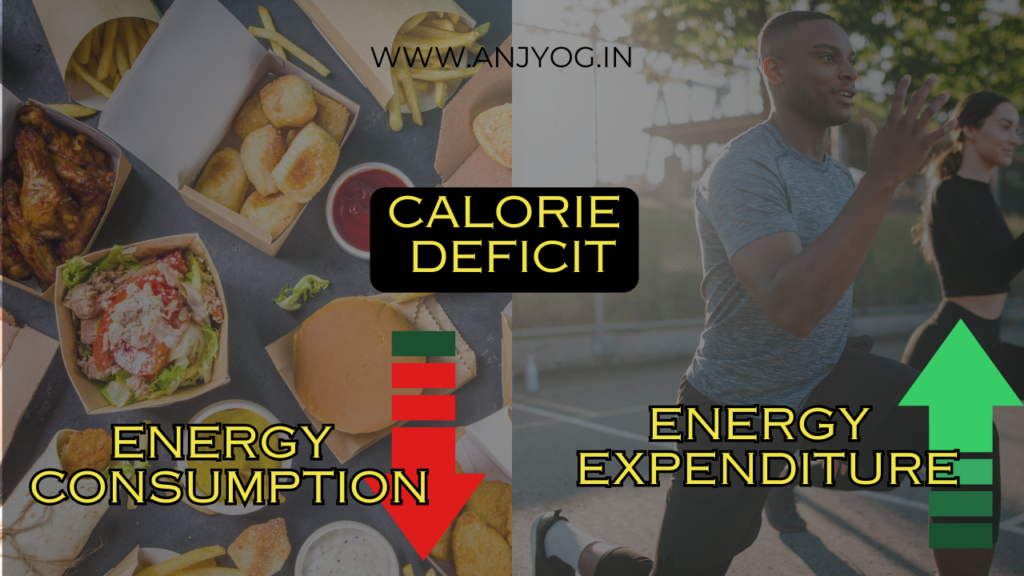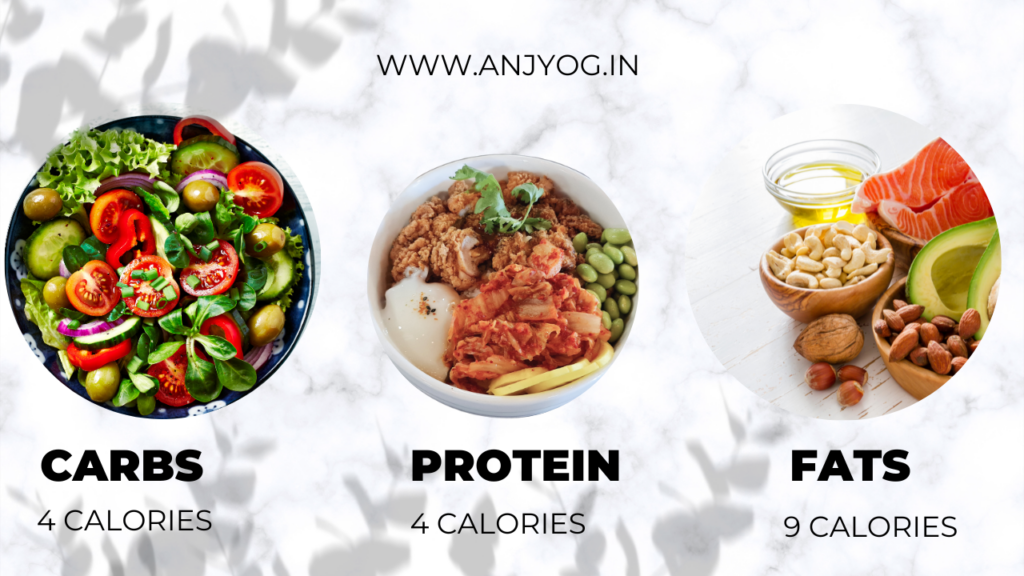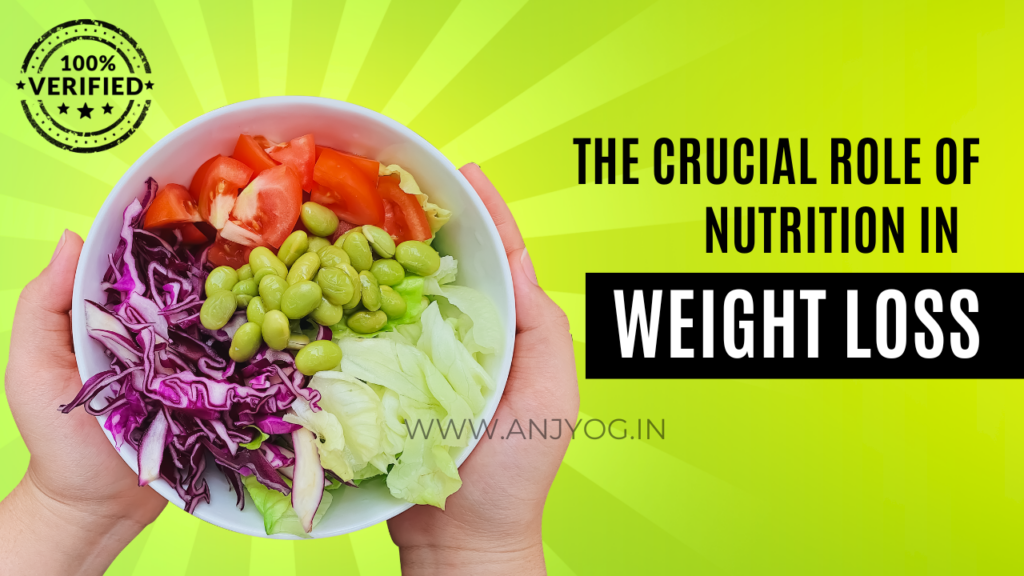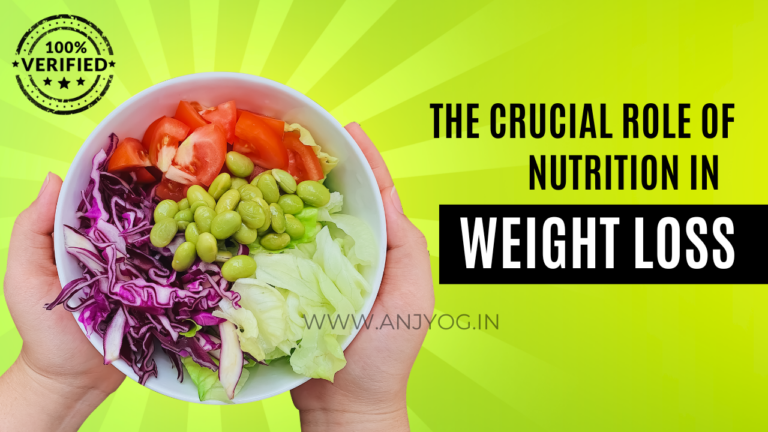Embarking on a weight loss journey involves a holistic approach that extends beyond just physical activity. One of the key pillars that significantly influences your success is nutrition. In this comprehensive guide, we’ll delve into the intricacies of how proper nutrition plays a pivotal role in achieving and sustaining weight loss goals. From understanding the basics of calorie intake to exploring the impact of macronutrients, we’ll equip you with the knowledge needed to make informed dietary choices on your path to a healthier, fitter you.
The Foundation of Weight Loss
To comprehend the significance of nutrition in weight loss, it’s essential to establish a solid foundation. Weight loss fundamentally boils down to the simple principle of creating a calorie deficit—expending more calories than you consume. This section will explore the basics of calories, metabolism, and the science behind how the body utilizes energy. By grasping these fundamentals, you’ll be better equipped to navigate the nutritional landscape.
Calorie deficit

a calorie deficit is established when the body’s energy expenditure, through activities like exercise and daily functions, exceeds the number of calories obtained from food and drink. The body then turns to its stored energy reserves, predominantly in the form of fat, to meet its energy demands. This process leads to weight loss over time.
Creating a calorie deficit can be achieved through two primary avenues: increasing physical activity and/or reducing calorie intake. Regular exercise not only burns calories during the activity but also elevates metabolism, leading to additional calorie expenditure throughout the day. Combining cardiovascular exercises, strength training, and other forms of physical activity contributes to a more comprehensive approach to weight loss.
Understanding Macronutrients
Macronutrients, namely carbohydrates, proteins, and fats, form the cornerstone of any diet. Each plays a unique role in supporting bodily functions and can influence weight loss outcomes. This section will delve into the specific functions of each macronutrient, highlighting their impact on metabolism, satiety, and energy levels. By understanding the balance required for optimal health, you’ll be empowered to make informed dietary choices.
Certainly! Let’s delve into the three macronutrients—carbohydrates, proteins, and fats—and explore their roles in the body, along with their calorie values per gram:
Carbohydrates:
- Role: Carbohydrates are the body’s primary source of energy. They are broken down into glucose, which fuels various bodily functions, especially the brain and muscles.
- Calories per gram: Carbohydrates provide 4 calories per gram.
Proteins:
- Role: Proteins are essential for the repair and maintenance of tissues, the production of enzymes and hormones, and the overall function of the immune system. They also serve as a source of energy, particularly when carbohydrate stores are depleted.
- Calories per gram: Proteins provide 4 calories per gram.
Fats:
- Role: Fats play a crucial role in insulation, protecting organs, and serving as a long-term energy storage form. They are vital for the absorption of fat-soluble vitamins (A, D, E, and K) and contribute to hormone production.
- Calories per gram: Fats provide 9 calories per gram.

Quality vs. Quantity
While the quantity of calories matters in weight loss, the quality of those calories is equally crucial. This section will explore the concept of nutrient density—choosing foods that offer a high concentration of essential nutrients per calorie. By prioritizing nutrient-dense foods, you not only support your weight loss goals but also enhance overall health. We’ll discuss the importance of whole, minimally processed foods and their role in sustaining long-term well-being.
Certainly! The concepts of quantity and quality play significant roles in the context of macronutrients—carbohydrates, proteins, and fats.
Quantity:
- Definition: Quantity refers to the total amount or quantity of macronutrients consumed in terms of grams or calories.
- Importance: While creating a calorie deficit is fundamental for weight loss, it’s crucial to pay attention to the overall quantity of macronutrients consumed. Consuming more calories than the body expends can lead to weight gain, regardless of the nutrient source.
- Example: If an individual consistently consumes more calories than their body needs, even from healthy sources, it can hinder weight loss goals.
Quality:
- Definition: Quality pertains to the nutritional value and source of the macronutrients consumed.
- Importance: Emphasizing the quality of macronutrients ensures that the body receives essential vitamins, minerals, and other micronutrients. This approach supports overall health and well-being.
- Example: Choosing complex carbohydrates from whole grains, lean proteins from sources like poultry or legumes, and healthy fats from avocados or nuts contributes to a nutrient-dense diet.
Balancing Quantity and Quality: Achieving a balance between quantity and quality is key for a well-rounded and sustainable approach to nutrition. It’s not just about counting calories but also about making nutrient-dense choices. For instance:
- Consuming an adequate quantity of carbohydrates, proteins, and fats to meet energy needs.
- Prioritizing nutrient-dense sources, such as whole foods and minimally processed options, to ensure a variety of essential nutrients.
- Being mindful of portion sizes to avoid excessive calorie intake, even from nutritious sources.
Practical Tips:
- Portion Control: Pay attention to portion sizes to avoid overconsumption, even of healthy foods.
- Whole Foods: Choose whole, unprocessed foods to maximize nutrient intake.
- Nutrient Density: Opt for foods that offer a high concentration of nutrients per calorie.
- Diverse Diet: Include a variety of foods to ensure a broad spectrum of nutrients.

The Impact of Sugar and Processed Foods
Excessive sugar intake and consumption of highly processed foods are major culprits in the modern diet, contributing to weight gain and various health issues. This section will shed light on the detrimental effects of added sugars and processed foods, emphasizing the need to minimize their presence in your diet. Practical tips on how to reduce sugar intake and opt for whole food alternatives will be provided.
The impact of sugar and processed foods on weight loss is substantial, and understanding this relationship is crucial for those aiming to achieve and maintain a healthy weight. Here’s an exploration of how these factors influence weight loss:
- Sugar: Sugary foods and beverages are often high in empty calories, providing little to no nutritional value. Consuming excess sugar can lead to an increased calorie intake without a corresponding increase in satiety, making it easier to exceed daily calorie needs.
- Processed Foods: Processed foods, especially those high in added fats and sugars, tend to be calorie-dense. Regular consumption of these foods can contribute to a calorie surplus, hindering weight loss efforts.
Insulin Resistance and Fat Storage:
- Sugar: High sugar intake can lead to insulin spikes, promoting the storage of excess glucose as fat. Over time, this may contribute to insulin resistance, making it more challenging for the body to effectively use insulin to regulate blood sugar levels.
- Processed Foods: Many processed foods contain refined carbohydrates, which can also lead to rapid spikes in blood sugar levels. This can contribute to insulin resistance and increased fat storage, particularly in abdominal areas.
Increased Cravings and Overconsumption:
- Sugar: Consuming sugary foods can trigger cravings and a cycle of overconsumption. The quick spike in blood sugar followed by a rapid drop may lead to increased hunger, causing individuals to eat more than necessary.
- Processed Foods: Highly processed foods, often designed to be palatable and addictive, can lead to overeating. The combination of added sugars, fats, and salt in processed foods can disrupt normal hunger and satiety signals, making it challenging to control portion sizes.
Inflammation and Metabolic Health:
- Sugar: Excessive sugar intake has been linked to chronic inflammation, which may contribute to metabolic dysfunction and weight gain. Inflammation can disrupt the body’s hormonal balance, affecting processes related to hunger, satiety, and energy metabolism.
- Processed Foods: Many processed foods contain inflammatory ingredients, such as trans fats and certain additives. Chronic inflammation is associated with metabolic disorders that can impede weight loss progress.
Water Retention and Bloating:
- Sugar: High sugar intake can lead to water retention and bloating, giving a false impression of weight gain. While this is not fat gain, it can be demotivating for individuals on a weight loss journey.
- Processed Foods: Processed foods often contain high levels of sodium, contributing to water retention and bloating. This can affect the accuracy of weight measurements and create fluctuations that may be discouraging.
Reducing the intake of sugar and processed foods is integral to a successful weight loss strategy. Opting for whole, nutrient-dense foods, prioritizing balanced meals, and being mindful of added sugars can positively impact both calorie control and overall health. By making these dietary adjustments, individuals can create an environment conducive to weight loss, improved metabolic health, and long-term well-being.
Personalizing Your Nutrition Plan

Personalizing your nutrition plan is a key aspect of successful weight loss, as it recognizes that individuals have unique needs, preferences, and lifestyles. Here’s a breakdown of the importance and strategies for personalizing your nutrition plan in the context of weight loss:
Individualized Caloric Needs:
- Importance: Each person has a different basal metabolic rate (BMR) and total daily energy expenditure (TDEE) based on factors like age, gender, weight, activity level, and metabolism. Personalizing your nutrition plan involves determining your specific caloric needs for weight maintenance and adjusting for a calorie deficit for weight loss.
- Strategy: Use online calculators, consult with a registered dietitian, or utilize fitness trackers to estimate your BMR and TDEE. Tailor your calorie intake to create a manageable and sustainable calorie deficit for gradual weight loss.
Macronutrient Ratios:
- Importance: While the overall calorie deficit is crucial for weight loss, the distribution of macronutrients—carbohydrates, proteins, and fats—can be personalized based on individual goals, dietary preferences, and metabolic responses.
- Strategy: Adjust the macronutrient ratios in your diet to suit your preferences and optimize satiety. For example, some individuals may benefit from a higher protein intake for muscle preservation and appetite control.
Meal Timing and Frequency:
- Importance: Personalized nutrition takes into account individual preferences regarding meal timing and frequency. Some people may thrive on three larger meals a day, while others prefer smaller, more frequent meals.
- Strategy: Experiment with different meal timing approaches to find what works best for you. Consider factors such as energy levels, hunger patterns, and lifestyle constraints.
Food Preferences and Enjoyment:
- Importance: Enjoying the foods you eat is crucial for long-term adherence to a nutrition plan. Restrictive diets that eliminate favorite foods may not be sustainable.
- Strategy: Include a variety of foods that you enjoy in your diet. Focus on whole, nutrient-dense options but allow for flexibility and moderation with treats or indulgences to maintain a positive relationship with food.
Adaptability and Flexibility:
- Importance: Life is dynamic, and your nutrition plan should be adaptable to different situations, such as social events, travel, or changes in activity levels.
- Strategy: Have a flexible approach to your nutrition plan. Instead of viewing deviations as setbacks, see them as opportunities to learn and adjust. Make choices that align with your goals while recognizing the importance of balance.
Monitoring and Adjustments:
- Importance: Regularly monitoring your progress allows you to make data-driven adjustments to your nutrition plan, ensuring it remains effective over time.
- Strategy: Keep a food journal, track your weight and measurements, and pay attention to how your body responds to changes. If needed, consult with a healthcare professional or a registered dietitian to make informed adjustments.
Personalizing your nutrition plan involves tailoring your approach to align with your individual needs, preferences, and goals. By understanding and adapting key components such as calorie intake, macronutrient distribution, meal timing, and food preferences, you can create a sustainable and effective nutrition plan that supports your weight loss journey. Remember, the most successful nutrition plans are those that are not only effective but also enjoyable and compatible with your lifestyle.










